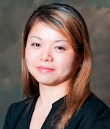Feb. 9, 2016
 When I graduated, I worked on a palliative care team that opened my eyes to a world I never imagined existed and made me interested in conducting research.
When I graduated, I worked on a palliative care team that opened my eyes to a world I never imagined existed and made me interested in conducting research.
Working with a palliative team removed the technological aspects of providing patient care and focused on the humanistic components of treatment and how we can make things better for patients undergoing radiation therapy. It was on this team that I began working with my mentor, John French, senior director for the radiation therapy program at the BC Cancer Agency.
John noticed my interest in understanding how the way we provided treatment had evolved and how we might improve on things that weren’t working. I had a limited background in research, and my main obstacle was that I did not know how to start a research project. He took me under his wing and patiently guided me through the process.
His mentorship helped me learn how to start a research project. But that led to another obstacle: finding the funding to conduct the research. Thankfully, ASRT Foundation donors are incredibly generous and are providing funding to make important research possible.
I have been the grateful recipient of these research grants, and most recently received one in the fall of 2015. My research project, Educating Patients With Breast Cancer Undergoing Radiation Therapy — Assessing If Using Simulated Treatment Software During Education Session Can Improve the Delivery of Information and Reduce Anxiety, was selected for funding. This will make it possible for me to begin the project that I hope will improve patient care.
The availability of the ASRT Foundation’s research grants is critical for advancing our knowledge. Knowing these grant opportunities are open only to medical imaging and radiation therapy professionals creates the drive and motivation to contribute to the profession. It also helps develop the researchers of tomorrow.
New researchers always experience fear, whether it’s from a lack of experience or a lack of guidance, and it is difficult to overcome. The process the ASRT Foundation has created to develop a research project, from filling out the letter of intent and the grant application to conducting the study with their support, helps individuals go through a nonthreatening learning process.
Experienced researchers read over the study and provide feedback as part of the application process, which helps improve the project altogether. Applying for an ASRT Foundation grant helps researchers gain experience and develop stronger projects. Receiving a donor-funded research grant confirms that the researcher is ready to take on the project.
As someone who has received research grants from the Foundation, I can tell you that being selected for a grant means several things. It has given me a sense of prestige having my research recognized by an organization that supports creating change in the profession. Being selected also has given me more courage to conduct research because it means that others see value in what I am doing.
The Foundation and its donors have shown that they trust the work I do, that it is important and will benefit the R.T. community as a whole. I’m excited to help move the profession forward.
Funding research is important for the improvement of our profession, but the ASRT Foundation’s grants provide an additional benefit to our community. They help develop and guide new and experienced researchers, removing the fear of doing something new. They help elevate R.T.s and our medical imaging and radiation therapy profession, and help make what we all do every day more appreciated and recognized by patients and hospital staff.
As a recipient, I want to say ”thank you” to every donor who makes these grants possible. It is because of people like you that we are able to improve and strengthen the profession we love. When you donate to the Foundation, you are showing your belief in creating a brighter tomorrow for all R.T.s. It is your support that inspires me to continue researching and striving to create changes that will make a difference in the lives of patients, students and colleagues.